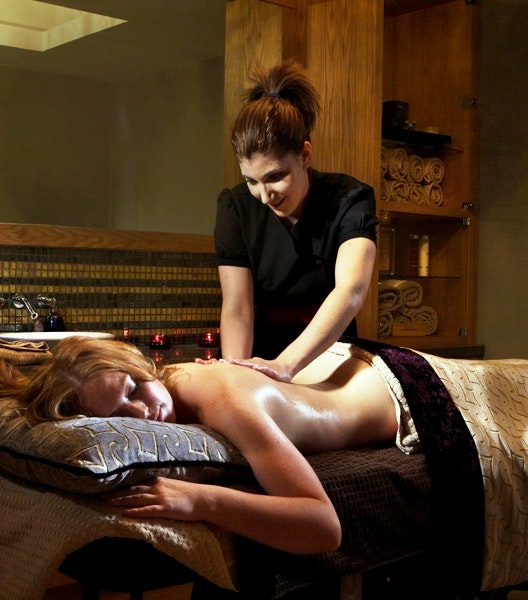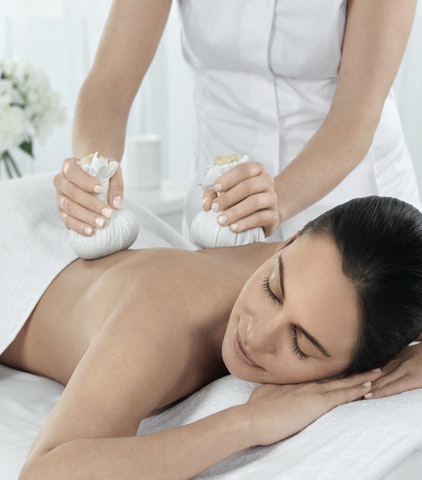
Deep Tissue Massage Treatments
If you’re ready to get your muscles unknotted, a deep tissue massage might be just what you need. Forget light and gentle motions, this massage is highly-effective, but it is not designed for comfort and relaxation. In this guide, we explain the basics of deep tissue massage and look at who can benefit from this robust spa treatment.
What is a deep tissue massage?
As the name suggests, a deep tissue massage treatment aims to work right into your knots, releasing lactic acid build-up in tired muscles, ligaments and tendons that may feel tense and inflamed.
What can you expect from a deep tissue massage treatment?
A full-body deep tissue massage typically lasts between 50 and 90 minutes. You can also book a 30 or 40-minute deep tissue back, neck and shoulders massage.
The technique involves manipulating the body’s deeper layers of muscles and connective tissues by rubbing a body oil with muscle-relaxant properties deep into the muscle layers. As well as their hands and fingertips, the therapist may use their knuckles, forearms and elbows to stretch and knead tougher areas of tissue.
A variant of deep tissue massages is the classic sports massage. A sports massage therapist often has specialised training in a variety of techniques, including deep tissue massage, shiatsu, muscle stretching, Triggerpoint (intense static pressure applied to massage points, a technique designed to trigger the body to heal itself) and Swedish massage. These are all aimed at preventing and treating sports injuries and improving athletic performance. The techniques work to remove lactic acid build-up while improving muscle tone and flexibility.
Another variation of this is the Lava Shell massage, which employs warmed lava shells to massage the back and neck.
Does a deep tissue massage hurt?
Unlike some other massage treatments, a deep tissue massage is not designed to be a relaxing experience. You are likely to feel some discomfort during the treatment (and may feel tender for a few days after), but the massage should not be painful and you must communicate any pain you experience to your therapist.
During all types of massage, your therapist should check with you that the pressure is acceptable. It is even more important with this type of massage, as, to be effective, substantial pressure needs to be applied. Never be afraid to speak up if you are in serious discomfort or, alternatively, if the pressure is too light.
What are the potential benefits of a deep tissue massage?
Deep tissue massage treatments can provide a number of physical and mental health benefits. If you suffer from a stiff neck, lower or upper back pain, or tight calves, then this massage technique may be the answer. Studies have also shown deep tissue massage to be very effective for relieving the symptoms of fibromyalgia and RSI (repetitive strain injury).
Many people also report that relieving muscular blockages with a firm massage can release emotional tension. The technique, if repeated on a regular basis, can make a real long-term difference to muscular tension and problems around restricted movement.
Who can benefit from a deep tissue massage?
Deep tissue massages can provide a number of health benefits, but can be especially beneficial for:
- people with bad postural habits
- those who have been under-using muscles
- those who have been over-using muscles
- treating sports injuries (
- those with a high pain threshold
- those experiencing RSI, fibromyalgia and osteoarthritis pain
Who should avoid a deep tissue massage?
While a deep tissue massage can provide numerous benefits and help to relieve tension, the technique is not suitable for everyone. You should avoid deep tissue massages if you:
- prefer soothing light massage pressure
- are pregnant
- have recently had surgery
As always, we recommend checking with a doctor before booking your spa package or standalone treatment. Always tell the spa about any medical issues prior to your treatment.
FAQs
How long should you wait between deep tissue massages?
This varies depending on your personal circumstances and health. For injury recovery, every two days might be appropriate. However, given the robust nature of the treatment, once or twice a month may be sufficient. The best advice is to discuss with your massage therapist the best frequency for you.
What should you do after a deep tissue massage?
It is advised to stay hydrated, rest and avoid strenuous exercise. You should also enjoy a healthy snack (but not a large meal).
Does a deep tissue massage release toxins?
The medical community is mixed about whether toxins are released during massage treatments. However, a massage can improve circulation, which could aid the body’s natural toxin removal process.
How long after a deep tissue massage can you exercise?
It is advised to wait at least 24 hours after a deep tissue massage before exercising. Your muscles are likely to be sore or tender following the massage. They will also be looser, which could increase the risk of injury.
Does a deep tissue massage burn calories?
Yes. You can burn between 200 and 700 calories during a deep tissue massage. In fact, the treatment is likened to a workout, given that it puts your muscles through their paces. While they are not a weight loss solution, deep tissue massages encourage lymphatic flow and circulation. This can aid weight loss when combined with a healthy lifestyle.
Top tip: Arrive early and use the spa’s sauna and hydrotherapy areas to further relax the muscles. Loosening them up in this way will improve the circulation and allow the muscles to relax, so the therapist can get even deeper into your knots to break up the build-up of lactic acid and muscular tension.
If you’re ready to book a deep-tissue massage at one of our spas, contact our team today to discuss your options.
Know a friend or loved one who might benefit from a deep-tissue massage? Check out our spa vouchers page, where monetary gift vouchers can be redeemed against treatments at over 500 spas across the UK.
If you like this, you might also like:




